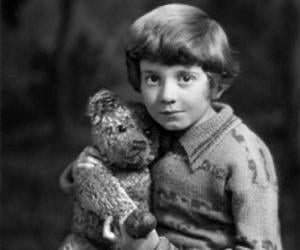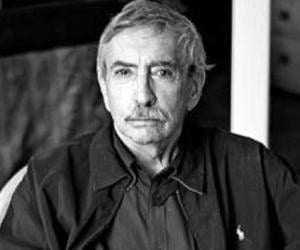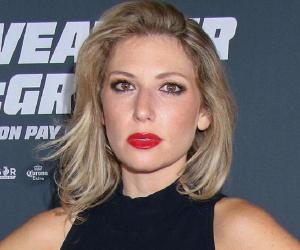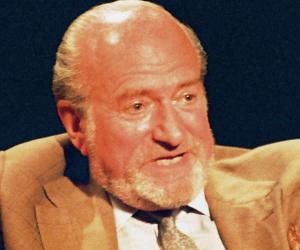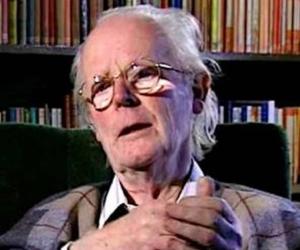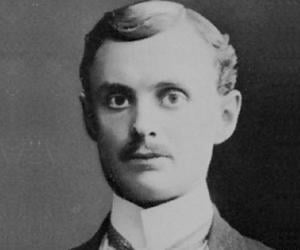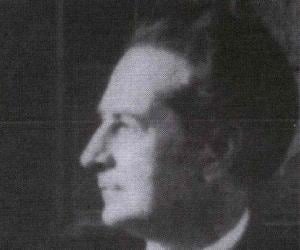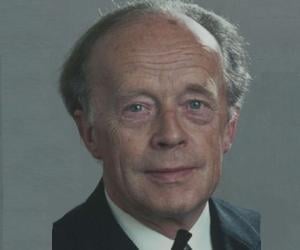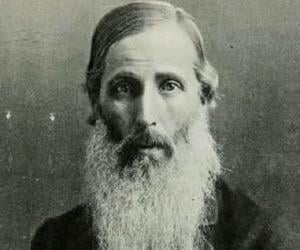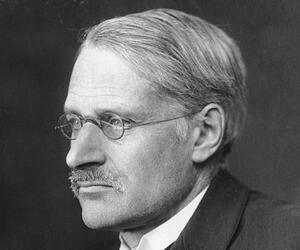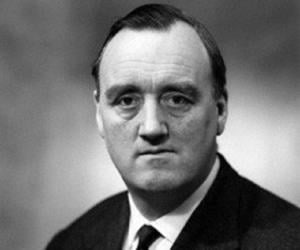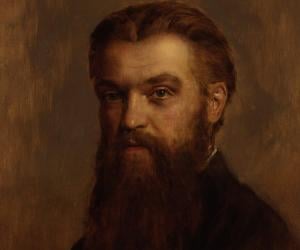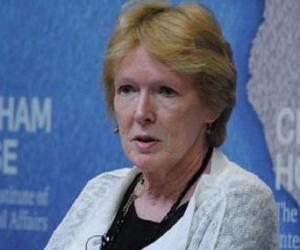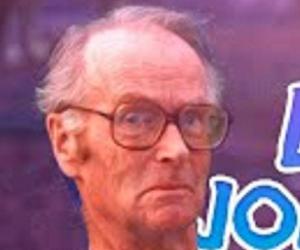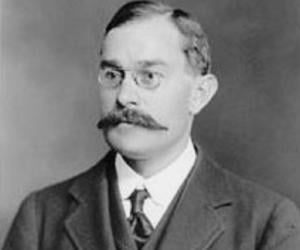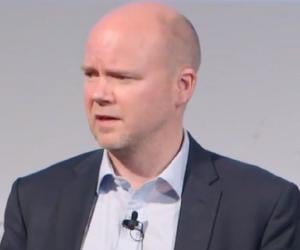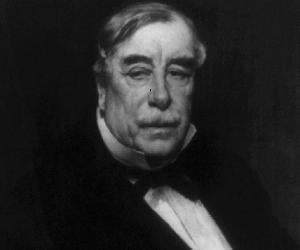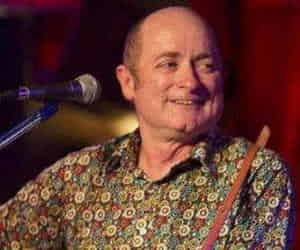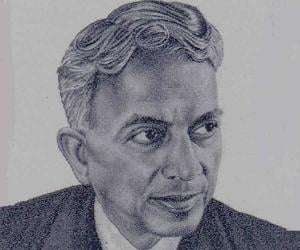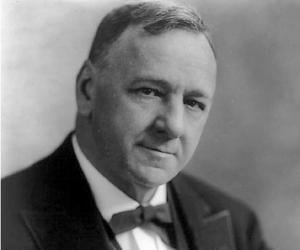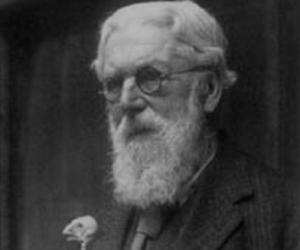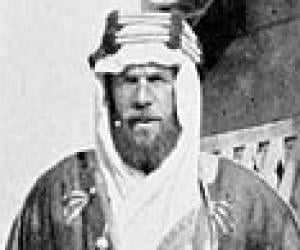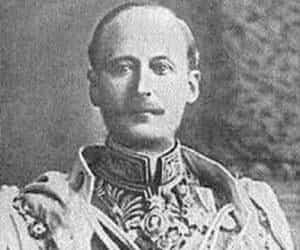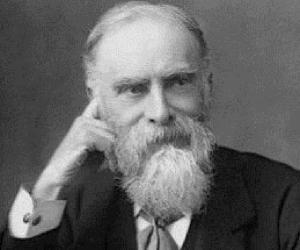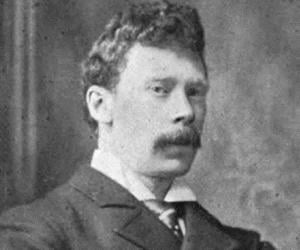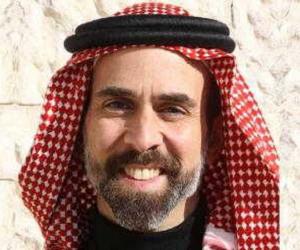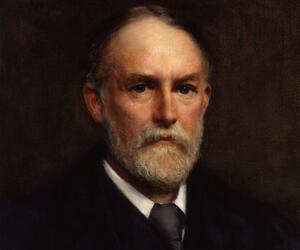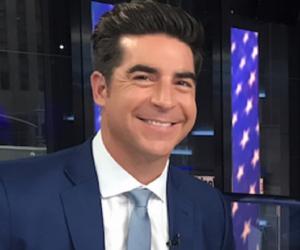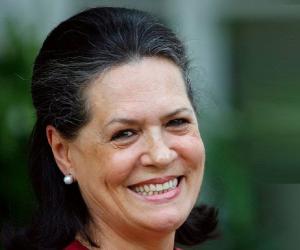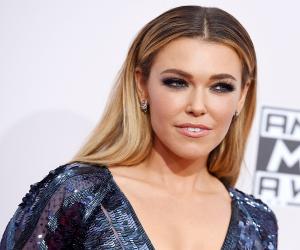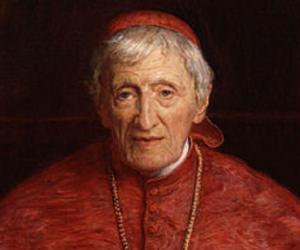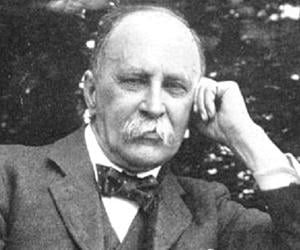Trinity College
Discover the notable alumni of Trinity College. The list includes people like Ronny Chieng, Christopher Robin Milne, Ari Graynor, Claus von Bülow & Will McCormack. This list of notable alumni is loosely sorted by popularity and has people from different domains of life, such as miscellaneous, writers, leaders, intellectuals & academics and scientists etc.
Vote for Your Favourite Trinity College
Right IconThis ranking is based on an algorithm that combines various factors, including the votes of our users and search trends on the internet.
1
Jesse Watters(Political Commentator Who Appeared on the Political Talk Show ‘The O'Reilly Factor’)
Birthdate: July 9, 1978
Sun Sign: Cancer
Birthplace: Philadelphia, Pennsylvania, United States
Jesse Watters is best known for his aggressive ambush journalism and for his vox pop interviews featured in the "Watters' World” segment of the show The O'Reilly Factor on Fox News. A seasoned political commentator, he has also hosted the talk shows The Five and Outnumbered.
Birthdate: December 9, 1946
Sun Sign: Sagittarius
Birthplace: Lusiana, Lusiana Conco, Italy
Sonia Gandhi is an Indian politician and president of one of the most prominent Indian political parties, The Indian National Congress. As the president of Indian National Congress, which has been one of India's most successful political parties in the country's post-independence history, Sonia Gandhi remains one of the most powerful women in India.
3
Christopher Robin Milne
(Author)
Birthdate: August 21, 1920
Sun Sign: Leo
Birthplace: Chelsea, London, United Kingdom
Died: April 20, 1996
Birthdate: May 20, 1981
Sun Sign: Taurus
Birthplace: New York, New York, United States
Height: 5'5" (165 cm)
Birthdate: February 21, 1801
Sun Sign: Pisces
Birthplace: London, England, United Kingdom of Great Britain and Ireland United Kingdom
Died: August 11, 1890
An important figure in the English religious history, John Henry Newman was a nineteenth century theologian, scholar and poet. Famed for leading the Oxford movement in the Church of England, he later switched to the Roman Catholic Church, eventually becoming the Cardinal Deacon of St. George in Velabro. Also an influential educator and writer, he was canonized in October 2019.
Birthdate: March 12, 1928
Sun Sign: Pisces
Birthplace: Virginia, United States
Died: September 16, 2016
7
Caterina Scorsone
(Known for playing Dr. Amelia Shepherd on the ABC medical drama Grey's Anatomy (2010–present))
Birthdate: October 16, 1981
Sun Sign: Libra
Birthplace: Toronto, Canada
Height: 5'4" (163 cm)
8
William Osler(Canadian Physician and Co-Founder of ‘Johns Hopkins Hospital’)
Birthdate: July 12, 1849
Sun Sign: Cancer
Birthplace: Bradford West Gwillimbury, Canada
Died: December 29, 1919
Johns Hopkins Hospital co-founder William Osler was also an avid historian. He redefined medical education with his emphasis on clinical experience and his book The Principles and Practice of Medicine. Born to a missionary father in Canada, he was to follow in his father’s footsteps but decided to study medicine instead.
Birthdate: November 21, 1985
Sun Sign: Scorpio
Birthplace: Johor Bahru, Malaysia
Birthdate: April 27, 1983
Sun Sign: Taurus
Birthplace: Boston, Massachusetts, USA
Height: 5'5" (165 cm)
Birthdate: August 11, 1926
Sun Sign: Leo
Birthplace: Copenhagen, Denmark
Died: May 25, 2019
12
John Maynard Smith
(Mathematician, Evolutionary Biologist, Geneticist and One of the Founding Members of the 'University of Sussex')
Birthdate: February 6, 1920
Sun Sign: Aquarius
Birthplace: London, England
Died: April 19, 2004
One of the most influential evolutionary biologists of his generation, John Maynard Smith was originally aeronautical engineer. Later, he took a second degree in genetics and did extensive research on subjects like population genetics and evolution of sex. Known for formalizing the central concept in evolutionary game theory, he introduced the evolutionarily stable strategy, impacting a wide variety of studies.
13
Charles Rolls
(British Motoring and Aviation Pioneer & Co-Founder of 'Rolls-Royce')
Birthdate: August 27, 1877
Sun Sign: Virgo
Birthplace: Berkeley Square, London, England
Died: July 12, 1910
British automobile and aviation pioneer Charles Stewart Rolls is remembered for co-founding Rolls-Royce. The Cambridge alumnus was the first pilot to fly across the English Channel and back without a halt. He died in a plane accident at age 32 and was the first British aviator to do so.
14
Alfred Radcliffe-Brown
(British Social Anthropologist Who Developed the Theory of Structural Functionalism)
Birthdate: January 17, 1881
Sun Sign: Capricorn
Birthplace: Birmingham, England
Died: October 24, 1955
Best known for his work on the pre-industrialized societies, Alfred Radcliffe-Brown visited Andaman Island and Western Australia to study the social structure of the people there, later writing two important books on them. A renowned scholar, he taught at various preeminent universities across the globe before returning to England to establish the Institute of Social and Cultural Anthropology at Oxford.
15
Erskine Hamilton Childers
(President)
Birthdate: December 11, 1905
Sun Sign: Sagittarius
Birthplace: Mayfair, London, England
Died: November 17, 1974
16
Henry Sidgwick
(British Philosopher and Economist Best Known in Philosophy for His Utilitarian Treatise 'The Methods of Ethics')
Birthdate: May 31, 1838
Sun Sign: Gemini
Birthplace: Skipton, Yorkshire, England
Died: August 28, 1900
An influential English ethical philosopher and economist of the Victorian era, Henry Sidgwick is perhaps best known for his utilitarian treatise The Methods of Ethics. He promoted higher education of women and co-founded Newnham College. He remained a member of the Metaphysical Society and co-founded and served as first president of the Society for Psychical Research.
17
Brian F. O Byrne
(Film actor)
Birthdate: May 16, 1967
Sun Sign: Taurus
Birthplace: Mullagh, County Cavan Mullagh, County Cavan Cavan, Ireland
Height: 6'2" (188 cm)
18
G. M. Trevelyan
(Historian)
Birthdate: February 16, 1876
Sun Sign: Aquarius
Birthplace: Warwickshire, England
Died: July 21, 1962
19
William Whitelaw, 1st Viscount Whitelaw
(Who served in a wide number of Cabinet positions)
Birthdate: June 28, 1918
Sun Sign: Cancer
Birthplace: Nairn, Scotland
Died: July 1, 1999
20
William Kingdon Clifford
(Mathematician)
Birthdate: May 4, 1845
Sun Sign: Taurus
Birthplace: Exeter, England
Died: March 3, 1879
Birthdate: September 16, 1881
Sun Sign: Virgo
Birthplace: East Shefford, England
Died: September 18, 1964
22
Margaret MacMillan
(Canadian Historian and Professor at the University of Oxford)
Birthdate: December 23, 1943
Sun Sign: Capricorn
Birthplace: Toronto, Ontario, Canada
Canadian historian and Oxford professor Margaret MacMillan is the great-granddaughter of former British prime minister David Lloyd George. Best known for her works such as Peacemakers and Women of the Raj, she is also a Royal Society of Literature fellow and has earned several honorary degrees.
Birthdate: August 13, 1905
Sun Sign: Leo
Birthplace: Barry, England
Died: August 12, 1935
Birthdate: January 13, 1974
Sun Sign: Capricorn
Birthplace: Plainfield, New Jersey, United States
25
Richard Borcherds
(Mathematician)
Birthdate: November 29, 1959
Sun Sign: Sagittarius
Birthplace: Cape Town, South Africa
26
John Cairncross
(British Civil Servant Who Was Accused of Being a Soviet Spy)
Birthdate: July 25, 1913
Sun Sign: Leo
Birthplace: Lesmahagow, Lanarkshire, Scotland
Died: October 8, 1995
British civil servant John Cairncross is remembered in history as one of the 5 men of the Cambridge spy ring who served as Soviet spies. He had to give up his civil service job amid accusations of him being a Soviet spy. He later began an academic career, teaching at Northwestern University.
27
George Calvert, 1st Baron Baltimore
(Politician)
Birthdate: 1580 AD
Birthplace: Kiplin, England
Died: April 15, 1632
28
W. H. R. Rivers
(British Anthropologist, Neurologist, Ethnologist and Psychiatrist, Best Known for His Work Treating First World War Officers)
Birthdate: March 12, 1864
Sun Sign: Pisces
Birthplace: Chatham, Kent, England
Died: June 4, 1922
English anthropologist and psychologist W. H. R. Rivers is best remembered for his work on the Todas of the Nilgiri Hills. A qualified physician, he also taught at Cambridge and worked extensively on medical psychology. One of his best-known works is Kinship and Social Organisation.
29
Toby Young
(British Social Commentator)
Birthdate: October 17, 1963
Sun Sign: Libra
Birthplace: Buckinghamshire, England
Toby Young is an English social commentator and associate editor of an online magazine named Quillette, where he has been contributing as a writer since 2017. Over the years, he has also worked for popular publications like The Daily Telegraph and The Daily Mail. Toby Young is also credited with co-founding the now-defunct magazine Modern Review.
30
Thomas Gold
(American Astrophysicist and Professor Known for His ‘Steady-State Theory')
Birthdate: May 22, 1920
Sun Sign: Gemini
Birthplace: Vienna, Austria
Died: June 22, 2004
Austrian-born astrophysicist Thomas Gold is best-remembered for proposing the steady state theory of the universe and for his deep gas hypothesis through which he re-defined the abiogenic hypothesis and made it popular in the West. He served as professor of astronomy at Cornell University and remained a member of National Academy of Sciences and a Fellow of the Royal Society.
31
Michael Ignatieff
(Former Leader of the Official Opposition of Canada (2008 - 2011))
Birthdate: May 12, 1947
Sun Sign: Taurus
Birthplace: Toronto, Canada
Distinguished Canadian author, academic and former politician Michael Ignatieff, who was named a Member of the Order of Canada, presently serves as rector and President of Central European University. Ignatieff made his mark in politics as Member of the Canadian Parliament for Etobicoke–Lakeshore, Leader of the Liberal Party of Canada and Leader of the Opposition.
32
John Steffensen
(Australian Former Track and Field Athlete)
Birthdate: August 30, 1982
Sun Sign: Virgo
Birthplace: Perth, Australia
One of Australia’s most well-known track and field athletes, John Steffensen has won more medals for his country than any other male sprinter. Apart from his two gold medals at the 2006 Melbourne Commonwealth Games, he also has an Olympic silver and a World Championship bronze in his kitty.
Birthdate: October 2, 1957
Sun Sign: Libra
Birthplace: Perth, Australia
34
B. N. Rau
(Indian Civil Servant, Jurist, Diplomat and Statesman Known for His Key Role in Drafting the 'Constitution of India')
Birthdate: February 26, 1887
Sun Sign: Pisces
Birthplace: Mangalore, Karnataka, India
Died: November 30, 1953
Indian civil servant and jurist B. N. Rau was one of the persons behind the drafting of the constitutions of India and Burma. He also served as a judge of the Bengal High Court and the Court of International Justice. He was also the Indian representative to the UN and was eventually knighted.
35
Josephus Daniels
(Newspaper Editor)
Birthdate: May 18, 1862
Sun Sign: Taurus
Birthplace: Washington, North Carolina, United States
Died: January 15, 1948
Birthdate: February 1, 1811
Sun Sign: Aquarius
Birthplace: London, England
Died: September 15, 1833
37
D'Arcy Wentworth Thompson
(Zoologist)
Birthdate: May 2, 1860
Sun Sign: Taurus
Birthplace: Edinburgh, Scotland
Died: June 21, 1948
D'Arcy Wentworth Thompson was a Scottish mathematician, biologist, and classics scholar. A pioneer of mathematical biology, Thompson is best remembered for writing a book titled On Growth and Form, which is widely admired by architects, anthropologists, and biologists among others. Over the course of his illustrious career, D'Arcy Wentworth Thompson received several prestigious awards like the Daniel Giraud Elliot Medal.
38
H. Saint John Philby
(Explorer)
Birthdate: April 3, 1885
Sun Sign: Aries
Birthplace: Badulla, Sri Lanka
Died: September 30, 1960
Birthdate: December 7, 1888
Sun Sign: Sagittarius
Birthplace: Londonderry, Ireland
Died: March 29, 1957
40
Charles Hardinge, 1st Baron Hardinge of Penshurst
(Former Viceroy and Governor-General of India (1910 - 1916) )
Birthdate: June 20, 1858
Sun Sign: Gemini
Birthplace: London, England
Died: August 2, 1944
Once the viceroy and governor-general of India, Lord Hardinge was the grandson of another governor-general, Henry Hardinge. His tenure witnessed the transfer of India’s capital from Calcutta to New Delhi. He was also instrumental in sending a large number of Indian soldiers to fight for Britain in World War I.
41
Arthur Wellesley, 5th Duke of Wellington
(King)
Birthdate: June 9, 1876
Sun Sign: Gemini
Birthplace: London, England
Died: December 11, 1941
42
James Bryce, 1st Viscount Bryce
(Historian)
Birthdate: May 10, 1838
Sun Sign: Taurus
Birthplace: Belfast, Northern Ireland
Died: January 22, 1922
43
Lord Frederick Cavendishdish
(Politician)
Birthdate: November 30, 1836
Sun Sign: Sagittarius
Birthplace: Eastbourne, England, United Kingdom
Died: May 6, 1882
44
Arthur Quiller-Couch
(Writer)
Birthdate: November 21, 1863
Sun Sign: Scorpio
Birthplace: Bodmin, England
Died: May 12, 1944
45
William Stephen Raikes Hodson
(Military officer)
Birthdate: March 19, 1821
Sun Sign: Pisces
Birthplace: Gloucester, England
Died: March 11, 1858
Birthdate: April 7, 1848
Sun Sign: Aries
Birthplace: Edinburgh, Scotland
Died: May 25, 1930
Birthdate: 1558 AD
Birthplace: London, England, United Kingdom
Died: August 31, 1625
48
Prince Ghazi bin Muhammad
(Prince)
Birthdate: October 15, 1966
Sun Sign: Libra
Birthplace: Amman, Jordan
49
William Smith O'Brien
(Politician)
Birthdate: October 17, 1803
Sun Sign: Libra
Birthplace: Dromoland Castle Hotel, Newmarket on Fergus, Ireland
Died: June 18, 1864
50
Frederic W. H. Myers
(British Poet, Classicist, Philologist, and a Founder of the Society for Psychical Research)
Birthdate: February 6, 1843
Sun Sign: Aquarius
Birthplace: Keswick, England
Died: January 17, 1901
Frederic W.H. Myers was a 19th-century classicist and a Victorian psychical researcher. The essayist’s best-known work remains his posthumously published 2-volume collection Human Personality and Its Survival of Bodily Death. He also penned award-winning poems. Rumors claim he was homosexual but also had a relationship with his cousin's wife.
